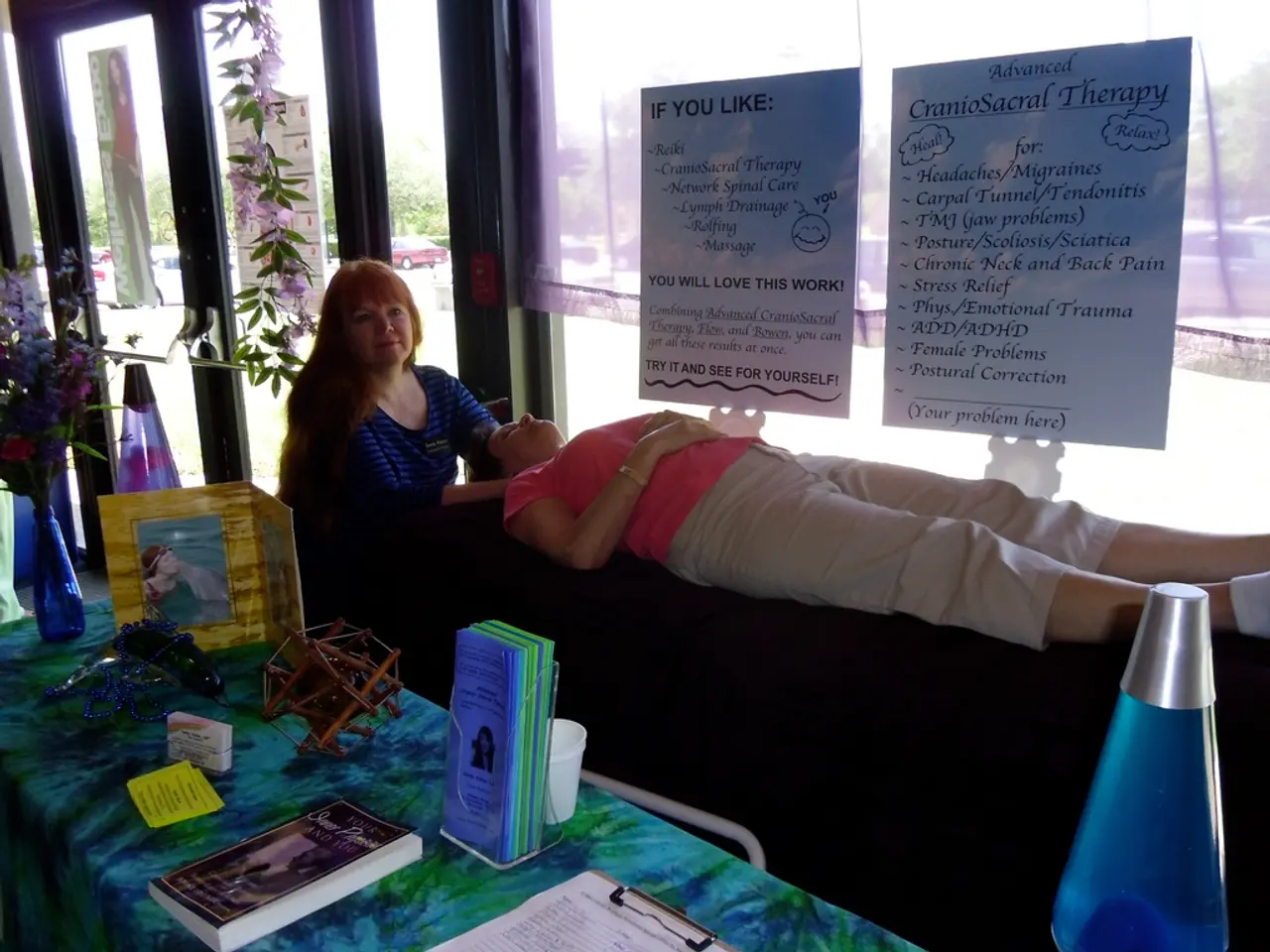Uncertainty about the unfamiliar: Identifying, root causes, and strategies for conquering apprehension
=====================================================
Fear of the unknown, also known as intolerance of uncertainty, is a common anxiety disorder that causes distress in unpredictable situations or events. This condition can significantly impact a person's daily life, but mental health care specialists can recommend the most appropriate treatment to help cope with this phobia.
Several self-help strategies may help those who fear the unknown manage their symptoms. These include practicing relaxation techniques, such as deep breathing and meditation, attending self-help support groups, and making lifestyle changes that reduce the risk of panic attacks. Other effective strategies include getting enough sleep, avoiding caffeine and other stimulants, eating a balanced diet, and exercising regularly.
Counseling can also be beneficial for those who experience fear of the unknown frequently and feel it negatively affects their life. Counseling provides a supportive environment to explore fears and develop healthy emotional responses. Seeking trusted friends, family, or professional therapists can offer social support and reduce feelings of isolation.
Cognitive Behavioral Therapy (CBT) is a specific type of therapy that helps people manage their fear of the unknown. CBT encourages thought reframing, using relaxation and breathing techniques, helping clients set structured goals, supporting gradual exposure to feared situations, and building confidence. CBT can be delivered by trained therapists and is effective for managing anxiety related to uncertainty and existential fears, including fear of death.
Effective coping strategies for dealing with a fear of the unknown include a combination of self-help techniques, counseling, and CBT. Self-help strategies focus on managing anxiety and stress by reframing negative thoughts, practicing grounding techniques, prioritizing self-care, journaling, and practicing gratitude.
Combining these approaches—self-care and mindfulness techniques, social support, and structured therapeutic interventions like CBT—provides a comprehensive way to cope with the fear of the unknown effectively. If anxiety feels overwhelming, working with a CBT-trained therapist is recommended to get personalized strategies and professional guidance.
It is important to note that doctors do not fully understand the exact cause of the fear of the unknown, and more research in this area is necessary. Factors that may cause a fear of the unknown include phobias developing at any point between childhood and early adulthood, and negative experiences in childhood that may have caused psychological trauma. Children may also develop a fear of the unknown if one or both parents are particularly anxious about the unknown and uncertainty.
The American Psychological Association suggests some additional strategies that may help people cope with the fear of the unknown, including avoiding dwelling on things beyond their control, accepting that everyone has differing tolerances of the unknown, practicing self-care, limiting exposure to news, learning new skills to increase self-confidence, reaching out to friends and family for support, seeking help from a mental health care specialist, focusing on things they can control, reflecting on past events that caused stress and how they overcame them, and practicing self-reflection.
In conclusion, fear of the unknown can be a challenging condition to manage, but with the right strategies and support, it is possible to reduce symptoms and improve overall well-being. By incorporating self-help techniques, counseling, and CBT into a comprehensive treatment plan, individuals can take control of their anxiety and live a more fulfilling life. If you or someone you know is struggling with fear of the unknown, it is important to seek help from a mental health care specialist.
Read also:
- Chest Pain Caused by Compressed Nerves: A Possibility Explored
- Hypothyroidism in Canines: A Comprehensive Look, Written by Catherine Barnette, DVM, and Reviewed by Emily Oliver, CVT on 07/31/2025. Published on 07/21/2023. Sharing options include Facebook, Twitter, Email, and Print.
- Can diabetic retinopathy be reversed?
- Estimated healthy life years for a Latvian: Not numerously abundant






